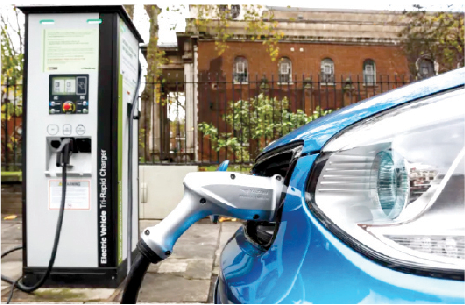Electric vehicles set to disrupt transport sector

E-mobility startup BasiGo and Kenya Power have officially rolled out the country’s first electric bus project in a State-backed plan expected to disrupt the overpriced transport sector and aid the nation’s transition to clean energy.
The plan will see Kenya Power offer the charging infrastructure along major roads while BasiGo will supply and maintain the Sh5 million worth of e-vehicles in partnership BYD Automotive. Bus operators, and PSV saccos will , through the deal, be charged a subscription fee of Sh20 for every kilometre covered.
“Growth and urbanisation, while desirable, present challenges. To sustain our growth, our city needs efficient, safe, and affordable means of daily transport. Buses and matatus are the most affordable and accessible means of transport for millions of Kenyans every day,” said BasiGo CEO and Co-Founder Jit Bhattacharya.
Citi Hoppa and East Shuttles have been earmarked for the first phase of the rollout that will gradually drive about 1000 EVs into Kenya roads within five years, signalling a possible pain to the oil marketers. The first 10 vehicles will be delivered in the coming months.
A 28-seater minibus covers approximately 100-150 kilometre per day, consumes fuel worth about Sh15000 every day. Meanwhile, the 25-seater K6 E-bus covering the same distance range at Sh20 per kilometre will cost Sh2000-3000, reflecting about 83 per cent cost reduction.
The Sh20 subscription fee will cater for the cost of leasing the battery, charging at a BasiGo depot, and service and maintenance for the electric bus. The company will begin delivering more electric buses in the second half of 2022.
With the government fast-tracking its ambitious plan to phase out low-capacity seater matatus to unlock traffic and ease movement within the city, the EV plan is set to usher in Bus Rapid Transport (BRT) and Rail Bus Service. The development is anticipated to open new revenue streams for Kenya Power, threatening the turf of oil marketers who are already ailing from the surging global prices occasioned by Russia-Ukraine tension.
Breakneck speed
However, there are concerns that a breakneck speed to build charging infrastructure by a company that is trying to stabilise after a series of loss making could be a setback to smooth rollout.
The power distributor is, however, banking on an established liaison office to support the development of the e-mobility ecosystem, which will include the identification of sites for potential charging stations, as well as requisite geo-mapping software to enable users locate the nearest charging station.
It also said the surplus electricity from the county’s installed capacity of 2991 MW, and an off-peak load of 1200 MW will support transport sector transformation.
“For Kenya Power, the e-mobility evolution provides us with an inorganic opportunity to grow sales. Kenya presently has an installed capacity of 2991 MW, and an off-peak load of 1200 MW. This means that there is enough power to support the entire e-mobility ecosystem, including powering charging stations for domestic and business use,” Kenya Power Acting MD and CEO Rosemary Oduor noted.
It estimates charging 50,000 buses and 2 million motorcycles during off-peak hours. With about 1000 minibus operating within the city, approximately 120MWH per day can be consumed. The power distributor is in talk with five other e-mobility players interested in joining the market.










